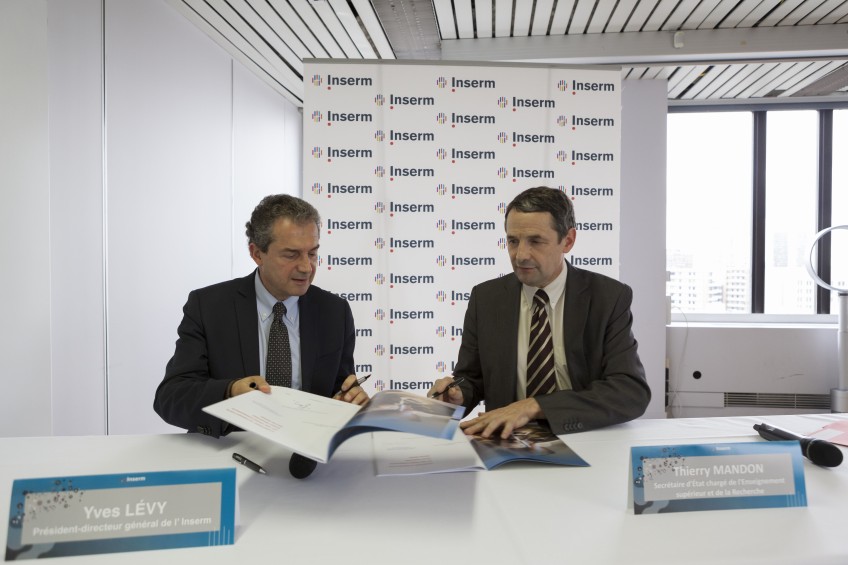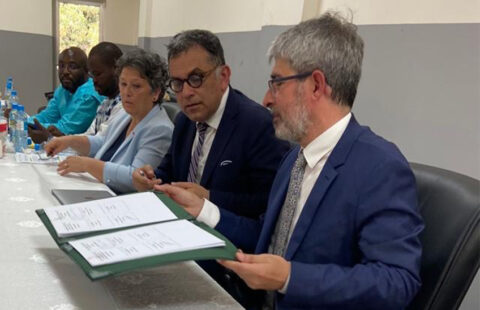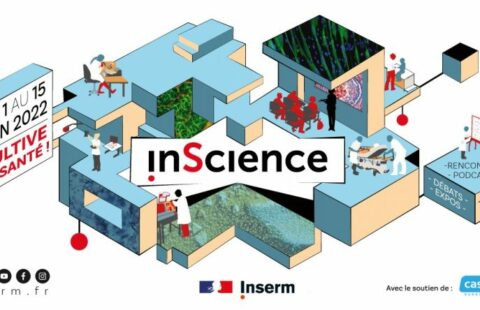On 11 July 2016, Mr Thierry Mandon, Secretary of State for Higher Education and Research, and the Chairman and CEO of the Institute, Professor Yves Lévy, signed the objectives and performance contract binding Inserm and the French State for the 2016–2020 period. The result of intense exchanges between Inserm and the relevant ministries, the contract defines the broad directions and actions that will be taken by the Institute in order to provide an environment conducive to the expression of talent, encourage the production of knowledge and best support its exploitation for societal, clinical or economic purposes, and enable laboratories to best respond to the new challenges and issues in the life sciences and health.
(c) Inserm – Mehrak Hans Lucas
Inserm has set itself 6 broad objectives for the next 5 years. These comprise 35 actions associated with specific performance indicators and time frames.
Objective 1: Support integrated and pluridisciplinary research, and produce knowledge of the highest standard
Inserm’s good results at international level are the result of the laboratories’ activity, based on unrestricted research, conducted at the researchers’ initiative. This approach will remain the linchpin of scientific policy for Inserm, which will make sure to maintain the level of allocations to the units, maintain set-up grants for newly recruited research fellows, enabling them to undertake their own research project, often following their return from a long post-doctoral period abroad, and continue its support for the Atip-Avenir programme. This spirit will also prevail in the design of more specific actions initiated by Inserm, such as the cross-disciplinary programmes, accelerators of technological research (ART) or new public health actions. On this last point, it will involve promoting scientific results as a support tool in making policy decisions related to health.
Objective 2: Support the translation of innovation into human health at economic, clinical and societal level
The area of biomolecular therapy development and exploitation of therapeutic targets nonetheless remains fragile, since it is a heavy user of financial resources, highly risky, and requires specialised and leading-edge expertise, while the potential returns are long-term or even very long-term. A specific project involving such innovations has yet to be undertaken with a view to strengthening the therapeutic or diagnostic applications of Inserm’s innovations, ensuring that Inserm maintains its high standing among the large international research institutions with respect to this development of therapeutic or diagnostic applications to the clinical stage, and encouraging the effective delivery of these innovations to the patient.
Objective 3: Strengthen the visibility and management of the infrastructures
Inserm intends to reinforce the clarity and coordination of its research infrastructures by developing its ability to ensure their supervision, mutual sharing and protection. The economic model (investment, operation, human resources) of the infrastructures as a whole must, in particular, be consolidated after a preliminary stage of defining Inserm’s strategic priorities and discussion with the partners.
Objective 4: Promote professional career paths and attractiveness
Inserm, a leading European operator in the biomedical research area, has a duty to implement an ambitious HR policy to maintain its position and meet the objectives of a research field that requires competency in an increasingly vast range of disciplines. To meet these challenges, the Institute hopes to adapt its employment policy to the demographic context: on the one hand, its ability to recruit staff with fresh skills via competitions will be limited in the near future; on the other hand, the reassignment of a significant number of positions from support to laboratory roles carried out in recent years is now clearly reaching a limit.
Schemes should therefore be established that will make it possible to simultaneously:
- maintain and optimise recruitment;
- mobilise the existing resources to the Institute’s strategic projects (supporting career paths and the potential for career development and mobility);
- adapt the evaluation processes to changes in the researcher’s role;
- optimise the career paths of contract staff, who are essential to the Institute’s research effort.
Objective 5: Contribute to the scientific strategy of the sites, optimise partnerships and simplify management to facilitate research
The reforms of recent years have enabled the emergence in our country of new models of scientific cooperation and working aimed at strengthening the synergies between the institutes of higher education and the research bodies. These reforms in the organisation of research in biology and health have led Inserm to evolve in order to participate fully in site policies, to jointly define the priorities, to support, together with the partners, the structuring of research in biology and health, and to ensure consistency between a national strategy and its local embodiments. Inserm advocates a principle of controlled participation in the numerous bodies established around these initiatives. First, we should talk in terms of programmes or projects rather than structures. Second, Inserm is involved in the structuring of the “biology/health” component of the sites, but does not have to participate in the general governance of the groupings or be a member of the Associations of Universities and Higher Education Institutions (Comues) (except when they are directing an Initiative of Excellence).
Objective 6: Increase Inserm’s role in the construction of the European Research Area
At European level, Inserm occupies a leading position in terms of coordination and participation in health-related collaborative projects under the 7th Framework Programme (FP7), and the Institute is one of the first two European recipients of ERC awards in the life sciences area. Inserm’s active participation in the construction of the European Research Area is well illustrated by the 434 FP7 projects managed by the Institute. To remain one of the major European actors in life sciences and health research, Inserm will implement a proactive, attractive and innovative policy. This policy has 3 main strands: to promote excellent targeted bilateral cooperation, to encourage the participation of Inserm teams in European programmes, and to spur influential actions within Aviesan and the Club of Associated Research Organisations (Clora).


